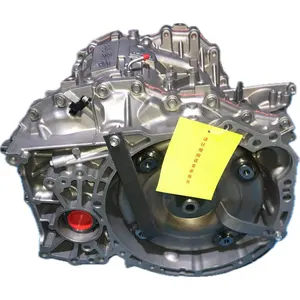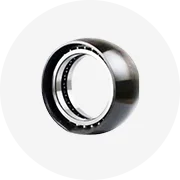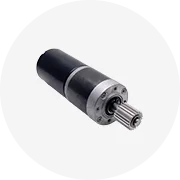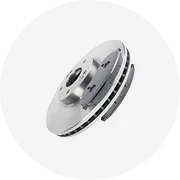
Helical Gear Standard PX42 PX60 PX90 PX120 Planetary Transmission Gearbox Low Noise Low Backlash Speed Reducer For Servo Motor













Gear boxes, also known as gear reducers, gear drives, or transmission boxes, are mechanical devices that are integral to power transmission systems. These components are designed to modify the speed and torque of an engine or motor to the required level for operating various types of machinery or vehicles. Gear boxes are utilized across a broad spectrum of industries, serving as the backbone for many mechanical operations.
The principle on which gearboxes operate is based on the mechanical advantage provided by gear ratios, which are the comparative sizes of two meshing gears. By using gears of different sizes, gearboxes can increase torque while decreasing speed, or vice versa, ensuring that the output is suitable for the task at hand without altering the power source itself. This capability is essential for applications where precise control over movement and force is necessary.
Gearboxes come in various configurations and sizes, tailored to fulfill diverse functional requirements. They are typically made from robust materials such as cast iron, steel, or aluminum alloys to withstand the stresses of operation. The choice of material and design directly impacts a gearbox's durability, efficiency, and suitability for specific environments or applications.
The variety of gearboxes available on the market reflects the vast array of applications they serve. Some common types of gearboxes include:
Bevel / Miter Gear Boxes: These gearboxes feature conically shaped gears that can handle power transmission between intersecting shafts, typically at a 90-degree angle. They are commonly used in automotive differentials, where they allow wheels to rotate at different speeds during turns.
Spur Gear Boxes: Utilizing straight-cut teeth that mesh parallel to the axis of rotation, spur gear boxes transmit power in applications where noise levels are not a critical concern. They provide a simple and efficient means of speed reduction and are often found in consumer goods like washing machines.
Worm Gear Boxes: With a design that integrates a screw-like worm and a worm wheel, worm gear boxes offer high-ratio speed reduction in a compact size. They are frequently used in conveyor systems and material handling equipment due to their smooth operation and self-locking capability.
Each type has its unique advantages and is chosen based on specific criteria such as load capacity, noise tolerance, efficiency requirements, and space constraints.
When selecting a gearbox for your business needs, it's crucial to consider several factors that will ensure you find an appropriate match for your application. The type of gearbox you choose should align with your industry's demands and operational requirements. For instance:
Additionally, consider customized support options like ODM or OBM if your application requires tailored solutions. Material choices such as cast iron or steel could be dictated by strength needs while aluminum might be chosen for lighter-weight requirements. The required gearing arrangement is also vital—be it bevel/miter, spur, or worm—based on the angle and type of motion transfer needed.
Alibaba.com stands as a global marketplace connecting businesses with a comprehensive array of gearboxes suited for various industrial needs. Whether you're looking for robust solutions for manufacturing plants or precise configurations for CNC machinery, Alibaba.com caters to all with its extensive collection from numerous verified suppliers worldwide.
By choosing Alibaba.com for your gearbox procurement needs, you benefit from the convenience of comparing products from different suppliers in one place. This helps you make informed decisions based on detailed product descriptions and supplier profiles without having to navigate through multiple vendors individually.
Moreover, Alibaba.com's commitment to facilitating secure transactions through services like Trade Assurance gives buyers peace of mind. This service ensures that payments are protected until delivery is confirmed satisfactory by the buyer. With this level of reliability combined with an easy-to-use platform that supports local languages and mobile purchasing, Alibaba.com is positioned as an indispensable tool for businesses seeking quality gearboxes on a global scale.
Various types of gearboxes are available for industrial use, each suited for specific applications and operational demands. Bevel/miter, spur, worm, helical, and planetary gearboxes are some common types that cater to different torque, speed, and orientation requirements.
The selection of gearbox material depends on factors such as the operational environment, load stress, and required durability. Materials like cast iron and steel are preferred for high-strength applications, while aluminum alloys are suitable for lighter-duty operations.
Customized support such as Original Design Manufacturing (ODM) and Original Brand Manufacturing (OBM) can be available for gearboxes, providing tailored solutions based on specific business requirements.
The gearing arrangement, whether it be bevel/miter, spur, or worm gears, directly impacts the direction and nature of the motion transfer, efficiency, torque handling capabilities, and noise levels during operation.
Yes, gearboxes designed with materials like stainless steel are suitable for food processing or other clean environments where minimizing contamination is crucial.
For heavy-load applications, prioritize gearboxes with high torque capabilities and robust materials that can withstand significant stress without compromising performance or longevity.
CNC machines and robotics typically require precision and compact designs found in planetary or helical gearboxes. These offer high-precision movement control and are often customizable to match exact specifications.
Common mounting positions for gearboxes include foot-mounted and flange-mounted configurations. The choice depends on space constraints and the alignment requirements of the machinery they will be used with.
Worm gearboxes use a screw-like worm to engage with a worm wheel, providing high-ratio speed reduction in a quiet and compact form factor. In contrast, spur gearboxes use straight-cut teeth on parallel gears, which can be noisier but simpler in design.
Yes, you can find gearboxes designed with weather-resistant materials and protective coatings suitable for outdoor applications from various suppliers on Alibaba.com.
The gear ratio of a gearbox defines the amount of speed reduction or increase from the input shaft to the output shaft. It also determines the torque conversion efficiency essential for matching machinery performance with operational needs.
Yes, some gearboxes offer versatile designs that accommodate multiple mounting positions, allowing for greater flexibility in machinery design and layout adjustments.
Certain industries tend to favor specific gearbox types due to operational demands; for instance, bevel/miter gearboxes are commonly used in automotive differentials while worm gearboxes are prevalent in conveyor systems.
Selecting quality core components like gears, bearings, and motors is crucial as they directly affect the efficiency, durability, and overall performance of the gearbox within an industrial setting.